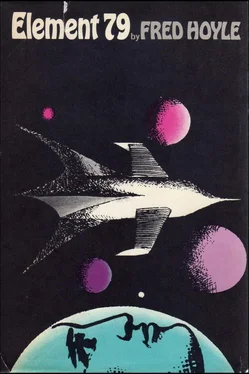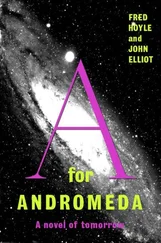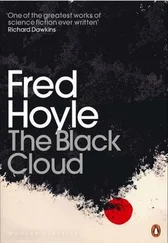With the passing of the sickness I felt quite hungry. Apart from a light lunch on the slopes of Meall Ghaordie, my last meal had been at five a.m. on the Scottish border. I tried the stuff on the platter in the oven. It was neither pleasant nor unpleasant, about like vegetable marrow. How nutritive it was I couldn’t tell at all, so I simply ate until I was no longer hungry.
Next I noticed the floor was softer here than it was in the passage or than it was in the big rectangular box. It would be quite tolerable to sleep on. It was harder than the usual bed, but after the first two or three days it would seem comfortable enough. What about a toilet? There was nothing here in the box at all appropriate to a toilet. So how did one fare if taken short with the panel closed? I determined to put the matter to test. I made preparations to use the floor of the box itself. I didn’t get very far, nor had I expected to do. The sickness came, the panel slid by, and within a minute I found a new box opening out off the passage. Stepping inside I discovered one large and one small compartment. The small compartment was obviously the privy, for it had a hole about a foot in diameter in its floor. I made the best use of it I could, wondering what I should do for toilet paper. My thoughts on this somewhat embarrassing subject were interrupted by a veritable deluge descending on my head from above. I hopped out of the smaller compartment into the large one. Here the downpour was somewhat less intense, about the intensity of a good powerful shower. Within seconds I was soaked to the skin. The shower stopped and I began to peel off my sodden clothes. I had just about stripped when the shower started up again. Evidently it went off periodically, every three or four minutes in the fashion of a pissoir. Stripped naked, I was heartily glad of the downpour, for I had sweated fairly profusely in my walk up the mountain. Clearly the liquid coming down on my head was essentially water, but it had a soapy feel about it. I stood up to about half a dozen bouts, in which I washed out my clothes as best I could. Then I carried the whole dripping caboodle back to my box. It would take several hours, I thought, for the heavier garments, particularly the trousers, to dry out, so I resolved to try for some sleep. As I dozed off I wondered what items I might lack for in this singular situation. I had no razor, but then why not grow a beard? By the greatest good fortune I always carry a small pair of scissors in my rucksack. At least I could eat, keep clean, and cut my nails.
I slept much longer than I intended, nearly ten hours. When I awoke I noticed the box door, cell door if you like, was open. Before touring again through the passageways, or patronizing the privy with its remarkable drenching qualities, I tested the metal oven door. A new platter was there, piled high with the same vegetable marrow stuff.
My clothes were snuff dry. So the humidity had to be quite low, as I had thought was probably the case. I trotted along to the showers in my underpants only, for these would easily be dried should I misjudge the pissoir. Fortunately the panel was open, and it remained open from that time on, so far as I am aware, so I waited for the flush, then darted in and darted out before the thing fired itself for the next occasion. At the best of times my mountaineering clothes are distinctly rough. After their recent wetting and drying they were now baggy and down-at-heel in the extreme. I saw no point in putting on my boots and simply went barefoot, rather like a shipwrecked mariner.
I padded along the passage knowing that sooner or later I would reach the “cathedral,” as I had come to think of the big rectangular box. Another box was open, different certainly from mine, and different, I thought, from that of Giselda Horne. I was just on the point of stepping inside when a voice behind me said “hello” in a foreign accent. I turned to find an Indian of uncertain middle age standing there. He stared rather wildly for perhaps thirty seconds and reached for support against the wall. To my surprise he went on, “It is not the stomach sickness. It is a matter of shock to see you, sir, for I attended a lecture you gave in Bombay last year. Professor Wycombe is it?”
“I did give a lecture in Bombay. You were in the audience?”
“Yes, but you will not remember me. It was a rather large audience. Daghri is my name, sir.”
We shook hands. “You have been in the big room, sir?”
“Yes, many times.”
“Recently, sir?”
“Yesterday. That is to say, before I slept. Perhaps ten hours ago.”
“Then you will find it has changed.”
Daghri and I hurried along the passages until we emerged into the cathedral. On the walls now were a mass of points of light, stars obviously. The projection onto the flat surfaces introduced distortions, of course, but this apart we were looking up at a complete representation of the heavens, both hemispheres.
“What does it mean, sir?” whispered the Indian.
For the moment I made no attempt to answer this critical question. I asked Daghri to tell me how he came to be there. He said he remembered walking out in the evening in the Indian countryside. Then suddenly, in a flash, it seemed, he was in this big cathedral room. It appeared almost as if he had walked around a corner in the road to find himself, not in the countryside anymore, but right there in the middle of this room, more or less at the exact spot where I myself had wakened.
Accepting that both Daghri and I were sane, there could only be one explanation. “Daghri, it must be that we are in some enormous spaceship. This display here on the walls represents the view from the ship. We’re seeing the pilot’s view out into space.”
“My difficulty with that thought, sir, is to find the Sun.”
I pointed to the bright patch lighting the entrance to the passageway. “That I think must be the Sun.”
“Is there any way to make sure of this, sir?”
“Quite easily. All we need do is sit and watch. The motion of the ship, if we are in a ship, must produce changes in the planets. We only need to watch the brighter objects.”
Within half an hour we had it, the apparent motion of the Earth itself, for the Earth-Moon combination was easy to pick out, once you looked in the right direction. Within an hour or so we had Venus and Mars, and already we knew the rough direction we were traveling—toward the constellation of Scorpius. We also knew the approximate speed of the ship, something above two thousand miles an hour. Reckoning the ship to be accelerating smoothly, and trusting to time from my watch, I was able to check the acceleration itself. It was quite close to ordinary gravity, a bit larger than gravity as I calculated it. This might well be the difference I had noticed in my legs right at the beginning.
It was while we were thus watching the display on the walls of the cathedral that the others slowly filtered in, one by one over a period of about five hours. The first to appear was a sandy-haired man going a bit thin on top. He announced himself as being of the name Bill Bailey, a butcher from Rotherham, Yorkshire, and where the hell was he, he’d like to know, and where was the bacon and eggs, and who was the bird he’d seen in the bloody showers, half-naked she was, but he didn’t object to that, the more naked the better so far as he was concerned. For a badly frightened man it was a good performance. Although I never took to Bill Bailey, the never-ending stream of ribald remarks which issued from his lips served in the months ahead to lighten a thoroughly grim situation, at any rate so far as I was concerned.
There were two other men and four women, making a total of nine captives. Of the whole nine of us, only two had been acquainted before, Giselda Horne and Ernst Schmidt, a German industrialist. Schmidt and the girl’s father were in the same line of business, meat-packing, and Schmidt had been visiting the Horne family in Chicago. He and Giselda had been swimming in the household pool when the “snatch,” as I liked to call it, had taken place. Schmidt had suddenly found himself in the central part of the “cathedral,” clad only in his swimming trunks. Giselda had found herself in one of the cell-like boxes attired in her dressing gown. Schmidt was pretty mad about the trunks, for obviously there was no chance of him acquiring any decent clothes here. Since we were not permitted to touch each other, since the temperature in the ship was a dry seventy degrees or thereabouts, there really wasn’t any logical reason for clothes. Nevertheless, I could see Schmidt’s point. I gave him the anorak out of my rucksack. Although it was no doubt ludicrous to do so, he was glad to wear it.
Читать дальше












